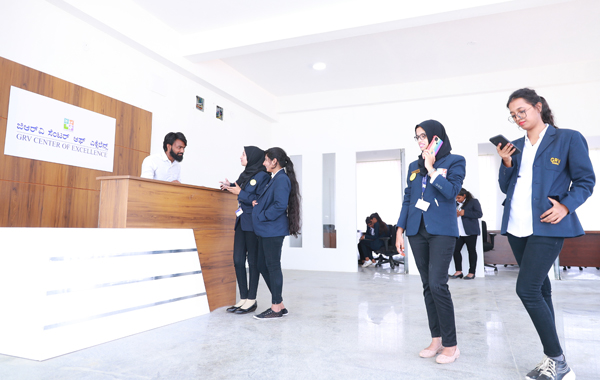Minimum Qualification Prescribed for Admission:
The minimum qualification prescribed for admission to the above courses shall be a pass in II PUC with Science subjects PCMB. except for Diploma in Medical Records Technology for which minimum qualification would be II PUC with any optional subjects such as Science/Arts/Commerce. Those trained in English Typing or in basic Computer knowledge will be given preference.
If sufficient candidates who have passed with PUC science subjects are not available, the candidates with S.S.L.C. qualification could be admitted to the above courses except courses mentioned.
The candidates admitted to any Para Medical Course either in Government or Private Institutions are not paid stipend, free ship or scholarship.
There shall be no commitment on the part of the State Government or Para Medical Board to provide job to the candidates who have successfully completed the course.
Age Limit for Admission:
The candidate should have attained the minimum age of 15 years as on 31st December prior to the year of admission. Upper age limit would be 35 years. In case of In-service, SC & ST candidate's upper age limit would be 40 years.

SSLC Basic - 3 Years + 3 Months Internship (If the candidate Passes 10th Standard)
PUC Basis - 2 Years + 3 Months Internship (If the candidate studied Chemistry, Physics, Biology)
Medical Laboratory Technology (MLT) is a branch of science applied to diagnose, treat and prevent diseases using clinical laboratory tests. This involves analysing body matter, including fluid, tissue and blood using micro-organism screening, chemical analysis and cell count. This branch has two prime career options, including medical laboratory technologists and technicians. A technologist performs most of their tasks such as preparation of slides human tissues or other specimens, using laboratory equipment. On the other hand, medical laboratory technicians help MLTs and carry out tasks such as blood tests and blood typing.
Essential skill set for Medical Laboratory Technology - Students who graduate in Medical Lab Technology are provided with ample opportunities for practice in public health facilities, hospitals, clinics, nursing homes and commercial laboratories laboratory professionals or experts. These settings are the optimal environment for such students to conduct research and experiments with new medical technologies. So, students who are interested in becoming medical laboratory technologist should have research-oriented technical abilities. Research requires a lot of hard work and thorough knowledge of all medical and clinical aspects as well as great accuracy in the conduction of tests. The students should have an interest in biology, chemistry as well as mechanical and computer knowledge to pursue this career.

SSLC Basic - 3 Years + 3 Months Internship (If the candidate Passes 10th Standard)
PUC Basis - 2 Years + 3 Months Internship (If the candidate studied Chemistry, Physics, Biology)
Diploma in Operation Theatre Technology concerned with the diagnosis, treatment, and prevention of diseases and ailments through the use of clinical laboratory tests. In this program, the candidates learn to perform tests that aid in the diagnosis and treatment of diseases. This program also equips candidates with the knowledge and skills required to handle advanced lab equipments and perform accurate laboratory tests.

SSLC Basic - 3 Years + 3 Months Internship (If the candidate Passes 10th Standard)
PUC Basis - 2 Years + 3 Months Internship (If the candidate studied Chemistry, Physics, Biology)
Diploma in Ophthalmology is the branch of medicine that deals with the Anatomy, Physiology and diseases of the eye. The duration of the course is one year but it may be more or less then this depending on rules and regulations of different institutes. During the course, students learn the properties of light and geometric optics, including refraction and reflection. The Diploma course is an important and career oriented one that opens many opportunities for the candidates after its successful completion. Diploma in Ophthalmology expands on medical and surgical ideas learnt in life systems and anatomy, physiology and ophthalmic sicknesses amid the graduate degrees. Ophthalmology proposes to avert blindness, ascertain ocular health and rehabilitate patients with visual imparity. The program relates to yet is not restricted to the examination in visual life structures, ocular anatomy, physiology, optics, hereditary qualities, genetics, pathology, practical ophthalmic science. They should have good communication and interpersonal skills and friendly behave towards the patients while treatment. Candidates must have positive outlook and attitudes as they have to encourage he patients while medication and other severe disease. They should be able to formulate topical therapies such cream, paste, lotion and ointment etc.